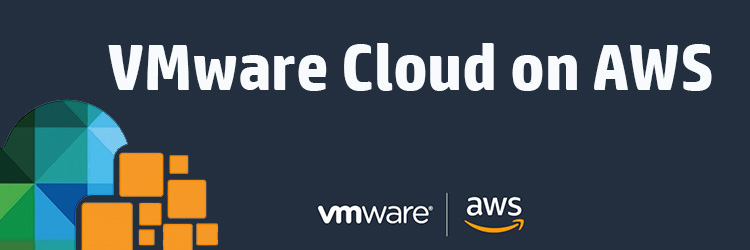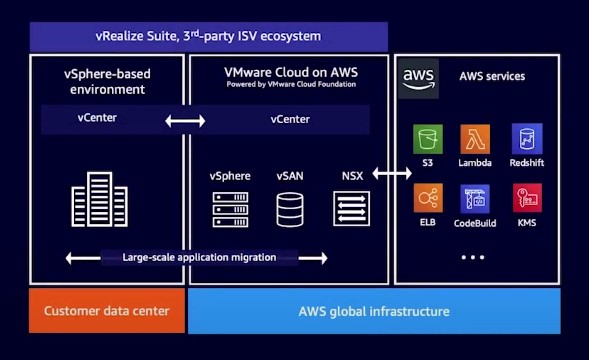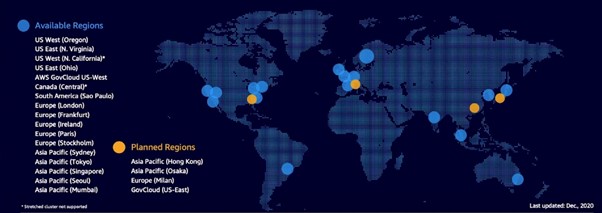
Enterprise modernisation is changing the way IT looks, and the need for application modernization is being driven by business and technological requirements. Perhaps your company wants to enter a new digital market, roll out a mobile app, react to the extraordinary pace of the times faster, reduce some technical debt, address a skills gap, or move away from unsupported platforms that pose threats to security, compliance, and supportability. To overcome these obstacles and further your application modernization journey, leverage VMware Cloud on AWS.
Since each application often operates in a specific environment based on its requirements, applications are also driving specific infrastructure decisions. However, there are five Rs to keep in mind when embarking on the path of application transformation:
- Re-platform
- Rebuild
- Re-Host
- Retain
- Retire
There are many options for infrastructure, including local clouds, public clouds, private clouds in data centres, and clouds at the edge. Customers or service providers may manage operator options. In their quest to modernize their application landscape, many businesses opted for the hybrid cloud as the best infrastructure option.
The challenges of implementing a hybrid cloud strategy
When implementing a hybrid cloud strategy, you frequently face a variety of difficulties, such as inconsistent infrastructures, divergent skill sets and tools between environments, dissimilar management tools and security context between environments, a lack of compliance and security certifications depending on the markets you serve, and the inability to move workloads in both directions. You have a loss in agility as a result of these elements. According to some studies, the time it takes to refactor and move 100 applications to the cloud is 7.4 years. Additionally, there is more risk from the perspective of staffing and skills, as over 90% of firms cite a lack of cloud-related skill sets. Reworked applications that were refactored and revalidated resulted in higher expenses. However, you can avoid these difficulties by using a hybrid cloud with consistent infrastructure in both your on-premise data centre and the cloud.
VMware Cloud on AWS
As a response to the mentioned challenges, VMware Cloud on AWS has been introduced. It is a partnership between AWS, a cloud computing platform that offers flexible cloud consumption economics and a wide range of services, and VMware, a provider of computer network and storage capabilities in the private cloud and the data centre.
VMware Cloud on AWS enables a smooth cloud migration. Because VMware Cloud on AWS runs on the same compute network that you already have in your data centre, you get a fast, cost-effective, and low-risk cloud migration. However, you can use AWS's rich VMware software-defined data centre as a service. VMware Cloud on AWS ensures operational and security consistency. It also enables easy workload and application portability even if you use the tools, services, and processes embedded in your IT organization's framework. It enables bidirectional application movement between AWS and your on-premise data centre. VMware Cloud on AWS also ensures the ability to host modern apps. Containers and VMs can be served concurrently in the same software-defined data centre thanks to VMware's support for Kubernetes in its hypervisor with Tanzu. You get access to AWS's entire service catalogue of over 200 services when you run it in VMware Cloud on AWS.
VMware Cloud on AWS is a cloud service developed in collaboration between VMware and AWS. It is essentially a VMware software-defined data centre that is delivered, operated, and supported by VMware and runs on AWS's bare metal infrastructure. VMware Cloud on AWS not only provides on-demand capacity and flexible consumption, but also complete operational consistency and security. It also allows for the seamless hosting of large-scale workloads with portability and hybrid operations across AWS's global footprint for reach and availability wherever those applications need to live. More importantly, it provides direct access to AWS's native services. As a result, as you migrate your workloads to the cloud, you can modernize them with services that you don't have in your data centre.

VMware Cloud on AWS is the enterprise-ready modernization platform. Modernizing applications in VMware Cloud on AWS is a two-step process. To begin, migrate your applications to the cloud. Once your workloads have been moved to VMware Cloud on AWS, you will have access to native AWS services to develop modern applications that you would not have been able to develop in your data centre.
Modernize applications and infrastructure operations using VMware Cloud on AWS
VMware Cloud on AWS makes it simple to modernize applications and infrastructure operations.
Automate infrastructure operations: You have access to a full API service and can do product development from an infrastructure operations perspective. Infrastructure as code automation manages your infrastructure with tools like Terraform.
Transform applications with Kubernetes: With VMware Tanzu Kubernetes Grid and Tanzu Mission Control support, you can host containers and VMs in the same environment. You can also do agile development with full CI/CD ecosystem support.
Enrich with cloud services: It provides direct access to AWS services as well as VMware partner-ready solutions.
The benefits include reduced disruption during the migration and modernization journey and provided application portability. Complexity can be extracted. As a result, your infrastructure is no longer a barrier to moving to the cloud and modernizing your applications. You can also empower IT as a DevOps-ready platform.
VMware Cloud on AWS available regions
VMware Cloud on AWS is available in all AWS Regions worldwide. This is a list of currently available and planned regions.

Compelling economics and speed
As the fastest path to migrating workloads to AWS, VMware Cloud on AWS has a very compelling economic story. According to a TCO study conducted by Forrester Consulting, there is a 59% recurring savings from infrastructure and operations in a three-year comparison for over 3000 VMs. According to an IDC white paper, using VMware Cloud on AWS you can save up to 57% by eliminating costly rework and refactoring applications and shortening migration times from years to months.
Use cases for VMware Cloud on AWS
There are several use cases for VMware Cloud on AWS.
Next-generation applications: You can modernize your application in the VMware Cloud on AWS. You can either modernize your existing application, develop new applications, or have applications with hybrid requirements.
Cloud migration: VMware Cloud on AWS provides a path to migrate your application-specific, business-critical applications to the cloud, such as SQL and Oracle. It may also be beneficial to exit the data centre business and perform a data centre evacuation. Rather than upgrading your infrastructure, VMware Cloud on AWS can help you gain access to cutting-edge hardware technologies.
Data centre extension: With VMware Cloud on AWS, you can extend your data centre and have burst capacity, as well as publish virtual desktops. Rather than incurring CapEx for your test and development environments, you can burst them into the cloud as well.
Virtual desktops: Another important use case for VMware Cloud on AWS is virtual desktops. It can be used for burst capacity, disaster protection, and running a desktop as a service.
Disaster recovery: VMware Cloud on AWS supports creating new DR, replacing existing DR and moving it from the CapEx column to the OpEx column, and complementing the existing DR solution.
Advantages of VMware Cloud on AWS
Customers benefit enormously from VMware Cloud on AWS.
Best of both worlds: You get VMware enterprise software combined with Amazon Web Services' flexibility, speed, and global infrastructure.
Zero refactoring: When it comes to moving workloads from on-premise to VMware Cloud on AWS, zero refactoring is required, resulting in up to 69% lower migration costs and a reduction in time to get to the cloud.
Existing skills: You can leverage your existing skill set to save up to 71% on operations costs by leveraging the expertise you already have in place.
Cloud economics: You have a lower TCO for infrastructure, operations, and security savings when compared to traditional on-premise environments.
Reference:
AWS Events



